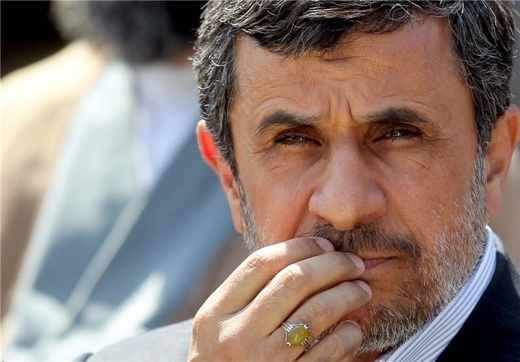Some principlists who are vocal in their criticism of former President Mahmoud Ahmadinejad say it would be an act of bravery on the part of the Judiciary if charges were brought against him for disrupting Iran’s economy and squandering national assets during the golden age of foreign revenues. On the other hand, his staunch supporters say his trial would be a great opportunity to reveal many things which have remained unsaid so far.
What comes next is the translation of an analysis published by Fararu on February 21, featuring the perspectives of a critic and a supporter of Ahmadinejad:
We hope that the Judiciary makes good on its pledge to try Ahmadinejad
Expressing hope that the Judiciary will deliver on its promise to prosecute Ahmadinejad, Secretary General of the Guilds and Bazaar Association of Iran, Ahmad Karimi Isfahani said, “Ahmadinejad has a long history in finger-pointing and tarnishing the reputation of others. On certain occasions, by building on such a tactic he has even succeeded in getting things done the way he wants them to be done. The most glaring mistakes in the history of the Islamic Republic were made during his term in office.”
The principlist politician added, “Therefore, it would be appreciable if the Judiciary treated him like an ordinary citizen. Any timely action in this regard will contribute to efforts to safeguard the establishment.”
Arguing that the offenses committed by Ahmadinejad outnumbers those under investigation by the Judiciary, he said, “Thanks to his mismanagement, numerous offenses were committed by officials under him like [Esfandiar Rahim] Mashaei [his senior cabinet member] and [Mohammad Reza] Rahimi [his first vice-president] for which he has to be held accountable. Besides, the heaviest blows were dealt to the economy during the golden age of foreign currency revenues when he could have streamlined the economy.”
Karimi Isfahani said that whenever Ahmadinejad found greater opportunities, he caused more damage to the country’s infrastructure.
He went on to say, “The Judiciary seeks to find out about cases involving a waste of assets or corruption. Even if we assume that his government has not siphoned off public funds, lots of resources have been wasted. Still he says that he will run for office!”
Denouncing offenses committed by Ahmadinejad as major, he added, “Disrupting the economy is his most serious offense. On the international front, he caused disorder too and cast doubt on Iran’s dignity. That’s why in my opinion, Ahmadinejad has to be severely punished.
Supporters of Ahmadinejad, on the other hand, have not expressed any opposition to him being put on trial.
Ahmadinejad will reveal what remains unsaid
Abdolreza Davari, the head of HOMA, a media outlet supporting Ahmadinejad, is among those who has welcomed the idea of trying Ahmadinejad and said, “In my opinion, this trial will be among the most remarkable in the history of the Islamic Republic.”
Stressing the fact that if Mr. Ahmadinejad faces charges, he should be treated like an ordinary citizen, he added, “The current supporting him welcomes the trial, because it will definitely offer an opportunity to say what remains unsaid.”
Whether his case should be heard in an open court is another bone of contention.
In reaction to Davari’s comments, Karimi Isfahani said, “His case should be heard like other cases the Judiciary deals with and the ruling should be made public, because it is obvious that like in the past Ahmadinejad will turn to finger-pointing and tarnishing the reputation of others. Now that not much is at stake for him, he definitely won’t take into account the considerations of the establishment.”
After eight years in power, when Ahmadinejad left office many people and experts denounced him as the main culprit for the economic and political damage the country suffered. We should wait and see when the Judiciary can file charges against him based on current complaints and not necessarily because of the damage he has caused to the country.
